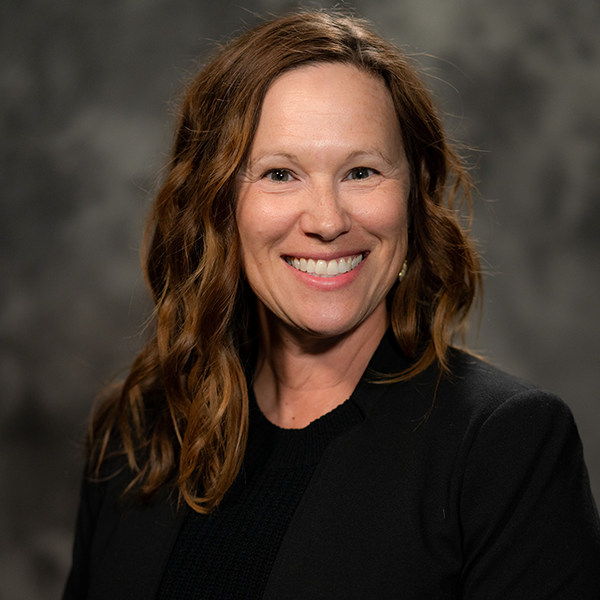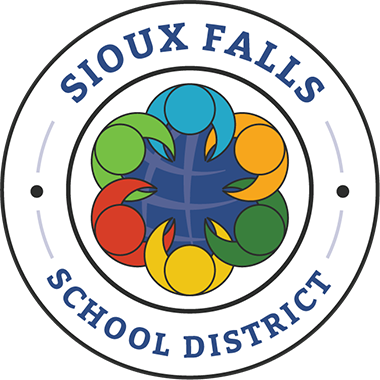Special Education Curriculum
Math
Essentials of Mathematics
Essentials of Mathematics is a year-long course that focuses on expressions and equations. Students will write and evaluate algebraic expressions using the set of whole numbers, and write and solve one-step inequalities, with one variable.
Resource Pre-Algebra
Resource Pre-Algebra is a year-long course that focuses on linear relationships and algebraic functions. Students will write and evaluate algebraic expressions using the set of whole numbers, decimals, or fractions. Students will write and solve multi-step inequalities with one or more variables. Students will graph ordered pairs and graph equations.
Resource Consumer Math
This course promotes the development of math skills for independent living including the following topics: budgeting, work-related skills, gross and net pay, housing, transportation, insurance, discount pricing, banking, credit cards, loans, interest, and comparing unit prices when buying groceries. Students will also practice reading information from a chart, graph, or form.
Social Studies
Resource World History
Students will identify the cultural contributions of various eras and areas of the world and demonstrate an understanding of how the past has impacted the present.
Resource Modern US History
Students will explain the development of the west and the industrial revolution from the pre-civil war, describe American involvement in wars around the world, and identify changes and challenges after WWII to the current day.
Resource Geography
Students will increase and demonstrate their awareness of topics related to World Geography. Nations will be studied in terms of cultures, topographies, industrialization, resources, and weather.
Resource Economics
Students will identify how the free market system works, as well as define other systems used around the world. Students will be able to describe terms related to economics, and how they are applied and impact their daily living.
Resource Sociology
Students will discover the meaning behind human behavior using a variety of case studies, group projects, and opportunities for in-depth study.
Resource Government
Students will identify forms of government. They will identify the process that immigrants use to become a citizen and name the three branches of government and their roles.
Resource Selectives
Employability I
Students will understand relationships between skills, abilities, interests, values, and work environment preferences; explore post-secondary options and career interests; recognize the different levels of education and/or training required for employment options; recognize the relationship between appearance and successful employment; identify positive ways to solve workplace problems; learn how to communicate workplace accommodations if necessary; understand the relationship between attendance and job keeping; demonstrate the ability to cooperate with other workers.
Employability II
Students will apply problem-solving skills to job situations with co-workers and supervisors; learn safe and appropriate use of technology and how it relates to obtaining and maintaining a job; complete a resume, complete a basic job application; complete a mock job interview; identify the different components of a paycheck stub/direct deposit; understand and complete work-related forms (W-4, tax forms, W-2).
Employability III
This course involves actual job experience at the job site. A ten-hour minimum work week outside school hours is required. Meet employer requirements for entry-level employees; work effectively at the job site; complete assigned tasks to employer satisfaction; gain work experience, and develop employment skills. Students must provide verification of hours worked, meet weekly with the instructor, and maintain employment throughout the semester.
Transition to Success
This course helps students develop a portfolio to obtain and maintain the information needed to make a successful transition after high school. Students will work on skills including effective communication, advocacy, personal care, daily living skills, budgeting, transportation, goal setting, and adult services.
Resource Electives
Positive Student Interaction
This course focuses on communication skills, problem-solving skills, and positive/appropriate interactions with others. It is designed for students who need to improve “interactions” between themselves and others. (2 semesters) As well as becoming productive citizens. This course will focus on substance abuse prevention.
Developing Academic Proficiency
Students work towards building: effective time management by utilizing a variety of strategies including using student planners; self-monitoring skills by checking grades using Infinite Campus and weekly conferences with classroom staff; study habits and strategies; appropriate classroom behavior by developing and practicing effective strategies; problem-solving skills; and, effective communication to teachers.
Resource Social Awareness
Students work to improve age-appropriate social skills; demonstrate age-appropriate responses to social issues; increase awareness of rights/responsibilities and understand the need for trust, compassion, respect, self-discipline, and honesty; respect individual differences; and, increase awareness of peer pressure and addictions.
Study Strategies I
Students will learn important study strategies designed to meet their individual needs to become more successful. Along with basic educational responsibilities individual strategies may include time management, organization, test-taking, information recall, problem-solving, self-advocacy, functional communication, use of technology, and focused transition skills.
Study Strategies II
Students will learn important study strategies designed to meet their individual needs to become more successful. Along with basic educational responsibilities individual strategies may include time management, organization, test-taking, information recall, problem-solving, self-advocacy, functional communication, use of technology, and focused transition skills.
Life Skills Classes
Life Skills Language Arts 1, 2, 3, & 4
These English Language Arts courses are designed for striving readers in grades 9-12. These courses utilize rich content that promotes contextual discussions and exposes students to authentic literature and to a variety of cultures through various materials. Students' language arts work to develop and improve skills in written language, reading, speaking, and listening. Students will learn a variety of reading strategies; practice spoken and written academic and content vocabulary; be instructed in and practice how to develop their writing skills; develop basic writing mechanics; and, build critical thinking skills.
Life Skills Math 1, 2, 3, & 4
Life Skills Math derives content from the Core Content Connectors with alignment to state math standards. This alignment allows students to use a modified curriculum to access grade-level standards while providing connections to functional skills. These connections support the transition to adulthood skills while promoting key mathematical understandings. Students in Life Skills Math are encouraged and supported in a continuous effort to foster higher levels of mathematical reasoning.
Life Skills Social Studies 1, 2, 3, & 4
Life Skills Social Studies I-IV curriculum covers modified material from the general education curriculum and standards (ELA, Speaking, Viewing, and Listening). Students will explore US History, World History, Government, Economics, & Geography and apply real-world knowledge and functional skills through classroom and community instruction.
Life Skills Science & Health 1, 2, 3, & 4
Practical Science and Health emphasize understanding of the nature of science, science technology, environment, social science, physical science, life science, and earth/space science as designated by the South Dakota Alternative Academic content and Achievement Standards.
Life Skills Electives
Fundamentals of Movement & Fitness
This course is designed to encourage lifelong fitness activities and may include part or all of the following: the development of gross motor skills, positive social skills and sportsmanship, stamina and cardiovascular endurance, and balance and coordination. Students engage in activities that promote interpersonal skills, problem-solving, and relationship building while engaging in fitness and movement activities.
Recreation/Leisure Skills
Students participating in Recreation/Leisure skills class learn to interact cooperatively with peers; learn and explore free time with age-appropriate activities; and learn socially appropriate behavior while engaging in recreational activities.
Fundamentals of Social Skills II
Social Skills II is designed to assist students in learning and applying appropriate social skills in different situations. The course will focus on manners and etiquette, problem-solving and conflict resolution, self-determination, and cyber safety.
Fundamentals of Home Maintenance
This class is designed to teach students the basics of home maintenance. Students will problem solve everyday household needs and identify ways to handle different emergency situations.
Life Skills Selectives
Vocational Skills I
Students are provided with a variety of hands-on work tasks to learn and reinforce various work skills in an unpaid, classroom setting. Students need to demonstrate the ability to follow a one-step direction, exhibit appropriate personal and social interaction and personal hygiene, maintain 15 minutes on-task behavior, and produce quality work. Students will explore various career options and be introduced to bus training.
Vocational Skills II
Students are provided with a variety of unpaid work tasks to reinforce various work skills. Students need to demonstrate the ability to follow 1-2 step directions, exhibit appropriate behavior and personal hygiene, maintain 30 minutes of time on task, and produce quality work. Students will explore career interests, abilities and needs, and bus training.
Vocational Skills III
This course provides students with the opportunity to master skills in the school or community in an unpaid worksite situation. Students need to demonstrate the ability to follow 2-3 step verbal or written directions, exhibit appropriate behavior and personal hygiene, maintain excellent attendance and maintain 45 minutes of on-task behavior while producing quality work. Students will explore career interests, abilities and needs, and bus training.
Vocational Skills IIII
Students will continue vocational skills exploration and training within a paid or unpaid community work setting. Students will receive job coaching support. Support and placement are determined by each individual student’s needs, abilities, and interests. Students must be able to demonstrate the ability to follow rules and guidelines established by individual employers. Students will explore career interests, abilities and needs, and bus training.
Educational Sessions For Parents
The Special Services Department welcomes communication regarding special education and related topics with all stakeholder groups, especially parents. Through an annual parent survey process, parents have communicated wanting more information about topics and organizations supporting youth with disabilities. As a result, a planning group of parents, partner agencies, and District leadership staff designed three educational sessions available for all parents/guardians of youth with disabilities.
State Performance Plan
The Individuals with Disabilities Education Act (IDEA) of 2004 requires states to have in place a State Performance Plan (SPP) that evaluates the State's efforts to implement the requirements and purposes of IDEA and describes how the State will improve student performance/achievement. The State reports to the public these results annually. The South Dakota Department of Education provides information to each South Dakota school district about their performance on the 16 indicators.

Dr. Patti Ward-Maguire
Coordinator Secondary Special Education
✆ (605) 367-7938
✉ Email Patti Ward-Maguire
➢ IPC - Special Education
